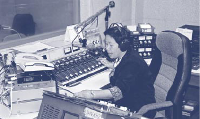Asian Development Bank and UNESCO: Fight against HIV/AIDS

With the financial support of Asian Development Bank, UNESCO initiated a project to prevent HIV/AIDS , human trafficking and non-traditional drug abuse in the Greater Mekong Sub-region (GMS), through radio soap operas in ethnic minority languages.

Background of the region
Many different ethnic groups live in the GMS - all with separate and distinct cultures and languages. These minority peoples are at risk of HIV/AIDS not because of their cultures, but because of their marginality, poverty, lack of access to education, and, perhaps most important, lack of culturally appropriate HIV/AIDS prevention materials in their own languages. Although some of the languages have traditional scripts or ones created especially for them, most are unwritten languages -- making the task of producing linguistically appropriate materails even more difficult.
HIV/AIDS is a complex problem involving not only straighforward medical issues, but also cultural behaviours and beliefs, Thus, scientific knowledge about HIV/AIDS alone is not sufficient for effective prevention . Grounding HIV/AIDS prevention within a local cultural and linguistic context is essential for success.
First Broadcast
By fall 2004, the radio stations at the three pilot sites started broadcasting the radio soap operas . These programmes were developed using a distinct “UNESCO” methodology. The story lines were research-based, developed by local researchers gathering information and stories from the local people in the local languages.
The dramas were then written by local authors in local languages, rather than written in the national language and simply translated. Music and soundscapes were checked to ensure authenticity, and pilots were tested with a variety of local focus groups. All the programs aimed at the prevention of HIV/AIDS, as part of a linked triad of problems: HIV/AIDS, trafficking of girls and women, and IV drug abuse among ethnic minorities in Laos, China and Thailand.
Success and reproduction
In response to requests from the minority communities , UNESCO began to reproduce the soap operas, using cassette and CD format, to distribute the programmes more widely. In this way, the programmes could reach communities which lay outside broadcast range of the radio stations.
For more information please see UNESCO Bangkok and to request a copy contact Dr. David Feingold

